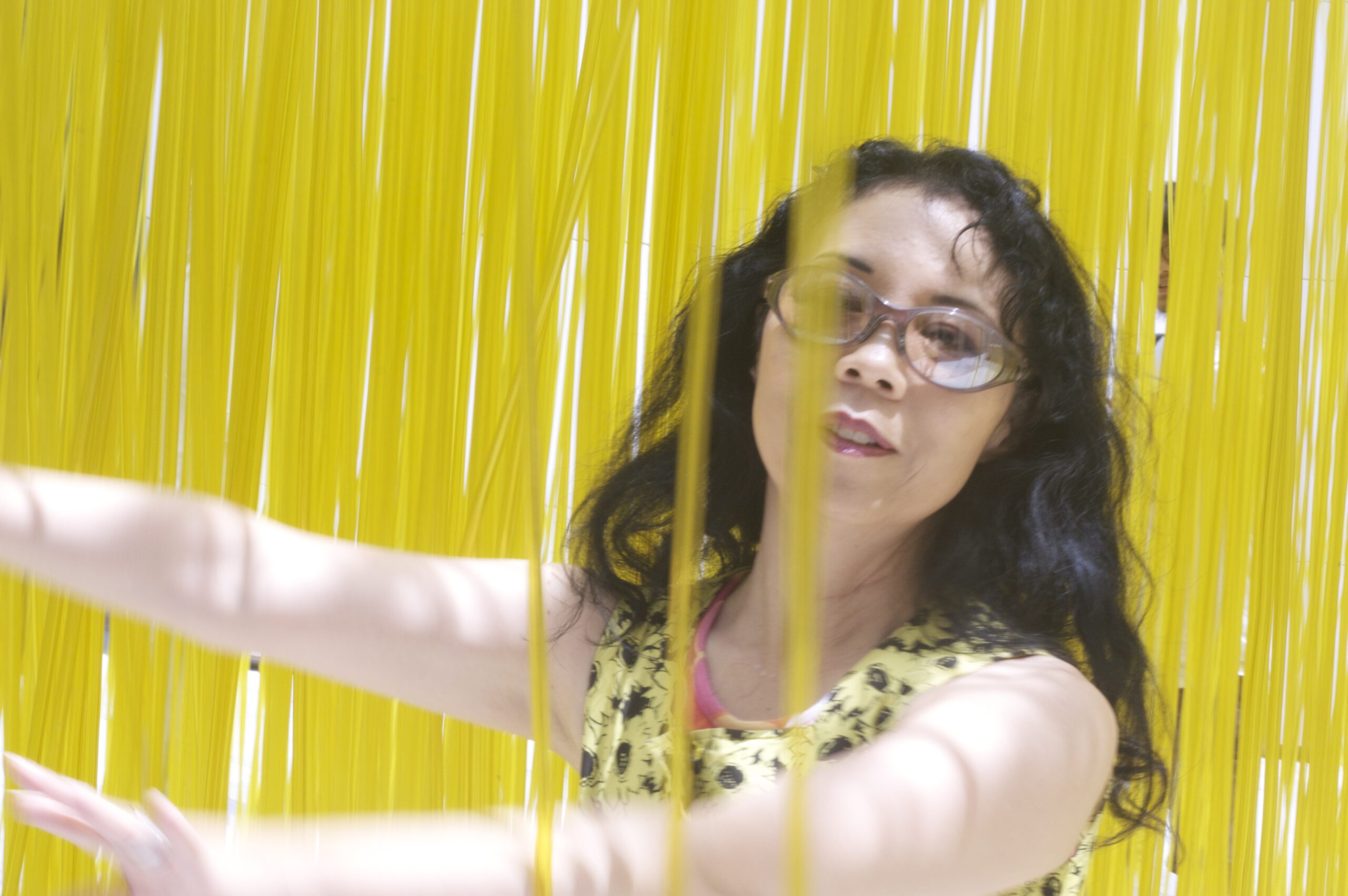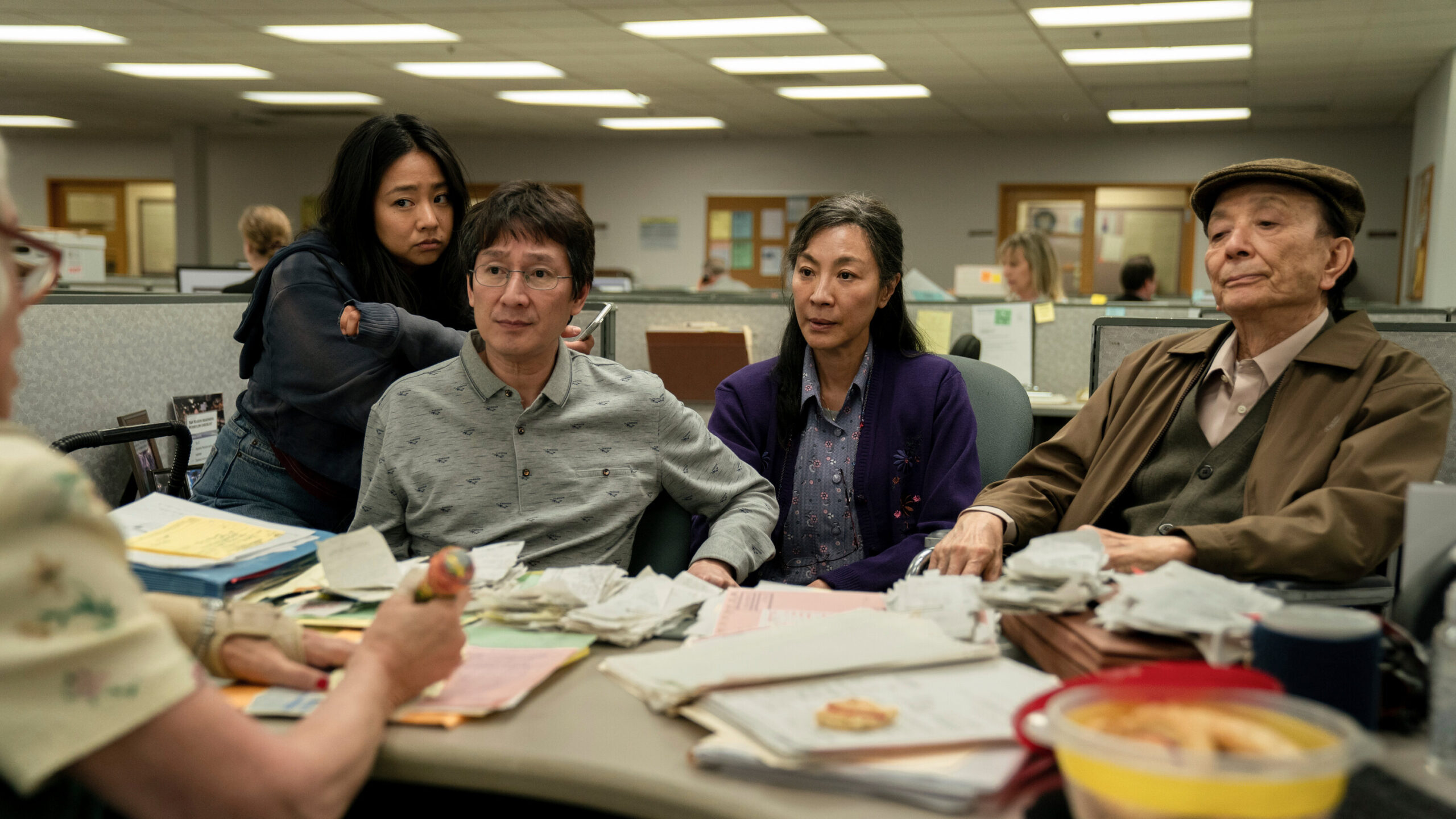For Asian Americans, the award accolades for Michelle Yeoh and Ke Huy Quan have been an exhilarating contrast to the increasing anti-Asian hate and the forever foreigner status. Sunday, award season will come to an end with the Oscars; “Everything Everywhere All at Once” has 11 nominations.
Only last month, in another forever foreigner moment, congressman Lance Gooden (R-Texas) questioned the loyalty of Representative Judy Chu (D-California), telling Fox News, “I question her either loyalty or competence.” Chu is the nation’s first Chinese-American congresswoman and the chair of the Congressional Asian Pacific American Caucus. Her district includes Monterey Park, where the recent dance studio shooting took place, and, at the beginning of the pandemic, her district saw an uptick of anti-Asian incidents.
Chu commented via email, “I absolutely loved ‘Everything Everywhere All at Once’ and was thrilled to meet some of the crew at Vice President Harris’s Lunar New Year celebration this year. I’m crossing my fingers for Michelle Yeoh, Ke Huy Quan, and the entire cast and crew’s continued success this awards season. After the decades of discrimination faced by AAPI actors like Yeoh, Quan, and James Hong, who just turned 94, I’m also hopeful that the movie’s massive commercial and critical success clears the path for more authentic AAPI stories produced and AAPI actors hired in Hollywood and beyond.”
If you haven’t seen “EEAAO,” Pulitzer Prize finalist Kristina Wong, who is currently performing her one-woman show in Los Angeles, summarized the film as “the craziest immigrant story I’ve ever seen and yet it made sense because you come to this country and there are a million possibilities.”
The 44-year-old Wong, a performance artist, actor and elected representative of the Wilshire Center Subdistrict 5 Koreatown Neighborhood Council in Los Angeles, also thought: “Michelle Yeoh could go for Best Actress, the Oscars, which seemed crazy to say out loud.” Asian mothers are not usually the lead and are typically “portrayed overly earnestly” or as the punchline. Wong, who met Yeoh when they were both honored with the EWP Visionary Awards, added that Yeoh’s acclaim and rise shows “Asian women, we don’t just disappear and become character actors. We don’t turn 30 or 40 of 50 and just fade away. We can still share stories and people want to watch them.” Wong met Yeoh last year when both received the EWP Visionary Award.
Snehal Desai, artistic director of East West Players, the largest and longest running Asian-American theater, noted: “This recent recognition is great, much appreciated and long overdue. These are artists who have been doing this work for decades. We are glad for the visibility and recognition, but it really should not have taken this long.” In 1965, James Hong, who plays the grandfather in “EEAAO,” was one of nine founding members of EWP.
Academy Award-nominated documentarian, author and curator Arthur Dong has a more philosophical view. Dong didn’t view “Everything Everywhere” until awards season was underway, busy curating two programs, one of which took place at the Academy Museum.
Dong, who signed the protest letter written to the Academy after 2016 host Chris Rock used East Asian American kids as a punchline for a joke, noted, “More so than even with ‘Nomadland,’ ‘Minari’ and ‘Parasite,” it’s about our representation.” He added, “Personally, I’m a very involved Academy member, but the Oscars isn’t, for me, the reason for my involvement in the Academy. There are the museum, the archives, the library and the educational and mentorship programs many people aren’t aware of.” While the visibility “EEAAO” generated has been great, Dong asked, “Why do we have to fall back on the Oscars to be validated?” The awards “EEAAO” has received may signify, “We’ve arrived; we finally have a seat at the table. But why don’t we make our own table? Heck, I’d rather have a ten-course Chinese banquet than dine at Spago!”
While the buzz has been all about “Everything Everywhere All at Once,” other people of Asian descent nominated include Brit Kazuo Ishiguro (“Living,” Best Adapted Screenplay), Domee Shi (with Lindsey Collins for “Turning Red,” Best Animated Feature) and M.M. Keeravani and Chandrabose (Best Original Song, “RRR”).
Tune in on Sunday night to see if Yeoh and Quan will add an Oscar to their everything bagel.












